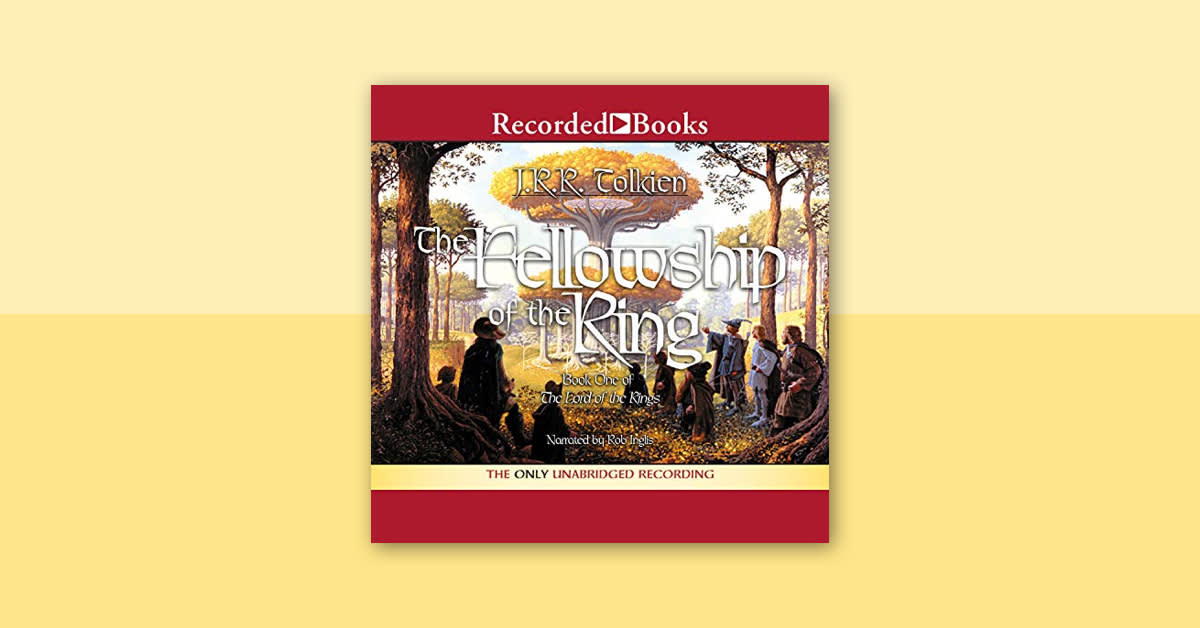If you were to conjure up a mental image of a heroic figure, whatever surefooted warrior you concocted would likely bear little to no resemblance (physical or otherwise) to someone like me. I am—and always have been—sensitive, gentle in temperament, and prone to setting aside ambition to weigh doing well with doing good. And it's been hard to parse that sense of self when it feels it can never amount to that Herculean expectation of striving, succeeding, and winning—doing it all with an ironclad conviction.
In reality, our cultural understanding of heroics has grown past that of myths and legends. We've lived through enough moments of great upheaval to recognize that heroics have little to do with who’s charging headfirst into battle or basking in the glow of glory. Communities have survived tumult through the support and guidance of nonprofits and sociopolitical movements, the very embodiment of the notion that leadership is not always synonymous with power or control. And in my own life, I've seen time and again that courage does not have to be loud or overstated—in fact, the bravest folks often ward off unthinkable evils and triumph over tremendous obstacles in complete silence. But even still, there is one act of valor that remains largely unsung: remaining relentlessly kind and caring in a culture that routinely champions the loudest and most forceful. Such steadfast gentleness and compassion demonstrates a dauntlessness all its own: the audacity to believe in, and hope for, a better world.
J.R.R. Tolkien’s The Lord of the Rings has no shortage of heroic figures. The list includes the bold yet diplomatic Aragorn, a born leader and the rightful King of Gondor; the skilled warrior Boromir, fully dedicated to his people; the wizard Gandalf, whose powers and wisdom were largely unmatched; the earnest and battle-ready dwarf Gimli; and Legolas, an Elven prince turned compatriot. And, of course, there's the unlikely quest hero, Frodo Baggins, and his three fellow Hobbits, Merry, Pippin, and Samwise, all setting out on a journey far beyond the reaches of their wildest imaginations—or their grimmest nightmares. Beyond the Fellowship, there are heroes still: King Theoden, Eowyn, Faramir, Elrond, and Galadriel, to name just a few.

Sam insists on escorting Frodo to Mordor.
<a href=https://www.audible.com/pd/The-Fellowship-of-the-Ring-Audiobook/1705047572>The Fellowship of the Ring
So, what is it about Samwise Gamgee that makes him such a standout in a cast of characters marked by their gallantry? After all, Sam is not of royal lineage nor is he particularly gifted with a broadsword, axe, or mystical abilities. But Sam represents a kind of heroism that we’re all capable of. He is good, humble, unselfish, and tenderhearted. And when the odds are stacked against them, when Frodo wants to give up and give in to the corrupting power of the One Ring, it’s Sam who keeps the journey on track and drives them toward Mount Doom. Though Frodo’s will and perseverance alone is heroic in its own right, it’s undeniable that, without the care, guidance, protection, and encouragement of his dear friend Sam, the journey would’ve been a failure.
Therein lies the wonder of Sam Gamgee, a meek gardener who was swept up into one of greatest battles of good and evil. Sam, the youngest of his siblings, grew up dreaming of lands beyond the hills of the Shire, harboring a particular fascination with Elves. Schooled on a steady diet of tales from his tutor Bilbo Baggins, Sam had an ear for songs and poetry and, despite lacking the education afforded higher classes, a mind brimming with wonder and promise. He is, in many ways, intended to be a proxy for the fantasy listener, daring to be immersed in something far outside the realm of their day-to-day.
But beyond that, Sam is the type of hero not often celebrated in the great canon of fantasy literature—a hero not just unexpected and underestimated in terms of stature or temperament, but a hero driven solely by friendship, loyalty, and love. Though Sam is initially brought along on Frodo’s journey as a kind of punishment for eavesdropping (or dropping eaves, if you’re so inclined), he volunteers for the treacherous journey from Rivendell to Mordor, knowing the dangers inherent in such a quest. As the Council of Elrond meets in The Fellowship of the Ring and forms a plan for destroying the Ring once and for all, Sam hides away in a corner, anxiously awaiting to hear what fate awaits his cherished Master Frodo. Fearing Frodo will be sent off alone, he makes himself known, interjecting the proceedings, and Elrond agrees to send him along on the trek. It’s a common thread throughout the series: Though the risk is great, Sam remains steadfast—wary but ever-devoted.

Sam offers encouragement in Cirith Ungol.
<a href=https://www.audible.com/pd/The-Two-Towers-Audiobook/1705047580>The Two Towers
Throughout the three books of The Lord of the Rings, Sam proves himself time and time again to be not only a loyal friend but also a responsible and diligent right-hand man. It is Sam who watches over Frodo while he sleeps, ensuring no harm befalls him; Sam who carries the load, cooks meals, and ensures Frodo remains nourished and energized; and Sam who challenges Frodo’s naïveté in trusting the traitorous Gollum. Certainly, Frodo bears the Ring but Sam, in turn, bears Frodo, especially as Sauron's dark power begins to destroy both his body and mind. And in one of the story's most poignant scenes, this metaphorical uplift becomes literal as Sam carries a weary Frodo up the staggering cliffs of Mount Doom, all the way toward the volcano's edge.
But perhaps the clearest signifiers of Sam’s inherent goodness and valor are his clash with a wicked foe and his subsequent rejection of the temptations raised by the Ring’s corrupting power. At the conclusion of the The Two Towers, Sam courageously fights off the fearsome Shelob, a monstrous, fiendish spider, after he is emboldened by the sight of Frodo stricken by the creature's venomous sting. Dread sets in as Sam turns back to Frodo, who has been totally paralyzed by the poison and appears to be dead. Though he’s initially uncertain about carrying on with Frodo’s mission as the Ring was never entrusted explicitly to him, he reasons that the burden is now his to bear. Sam slips the chained Ring around his neck, and readies himself for great peril. And though he knows it is now his responsibility to carry the Ring to Mordor alone, he also feels a pull towards doing what he feels is morally right after Frodo is carried away by a group of Orcs who have seized his limp (but still very much living) body.
As the narrative returns back to Sam in The Return of the King, he sets out to rescue Frodo. It is then that the Ring offers him visions of a grand life as the powerful “Samwise the Strong, Hero of the Age, striding with a flaming sword across the darkened land, and armies flocking to his call as he marched to the overthrow of Barad-dur.” But Sam shakes off this notion, comfortable instead to return to the Shire and his quaint rustic life: “...a small garden of a free gardener was all his need and due, not a garden swollen to a realm; his own hands to use, not the hands of others to command.”
The image of "Samwise the Strong, Hero of the Age" that the Ring conjures is faulty: One need not tower over others, wield a massive weapon, or conquer another's land to demonstrate strength. In that very moment, casting aside the temptations of the Ring and forging ahead to rescue his friend, Sam proves himself to be every bit the hero, with a spirit and a will stronger than hordes of muscled, combat-trained men.

Sam makes a vow to follow Frodo to the end.
<a href=https://www.audible.com/pd/The-Return-of-the-King-Audiobook/1705047599>The Return of the King
For Tolkien's part (his distaste for allegory aside), the parallels between Sam and his fellow Hobbits and the general populous of the English countryside—especially during the events of World War I—are evident throughout the story. The message is clear: No matter where you come from in terms of class, education, or wealth, you have the ability to save the world, without sacrificing who you are. Sam, who begins his journey in a rather servile position, is far from insignificant in the grand tale of The Lord of the Rings and in the very defeat of the darkness sweeping Middle-earth. He grows from sidekick to savior to Ring-bearer and beyond, all the while never growing hard, stoic, or cold. The Sam that returns to the Shire is certainly more self-assured, but he is, in his heart, unchanged. He was Samwise the Brave—and yes, Samwise the Strong—all along.
Further, if we're to take one message from the trilogy as a whole, let it be this: There is great honor in protecting those you love, courage in demonstrating warmth and gentleness when the odds are stacked mightily against you, and unfathomable heroism in holding onto scraps of hope and carrying on when all seems lost. Sam's genuine love—for life, for his home, and for the folks in his community—is what drives him there and back again. Moreover, his contentment with a garden and Rosie Cotton offers a model of what we all should strive for: not renown or power but a humble life built on what matters most.
Like many others, finding a kinship in Samwise Gamgee and his quiet form of leadership and heroism afforded me a new perspective on my own demeanor and abilities. I may not be physically strong, hail from an upper crust background, or wield command over others. But I know that I am softhearted, that I have bravely survived great loss and strife, and that I abide by a kind of heroism all my own. And maybe that's enough for me—as Tolkien himself once wrote: "It is no bad thing to celebrate a simple life."
So no, we will likely never ride astride a Great Eagle or glimpse one of Sam's beloved Elves in our reality. Still, simple human goodness and a generosity of spirit strike a blow to everyday evil more powerful than even Anduríl's blade. And that's the kind of heroics we're all more than capable of, if we just take heart, reject bitterness and the pull of despair, and instead choose to believe in just one indisputable truth:
There’s some good in this world—and it’s worth fighting for.








